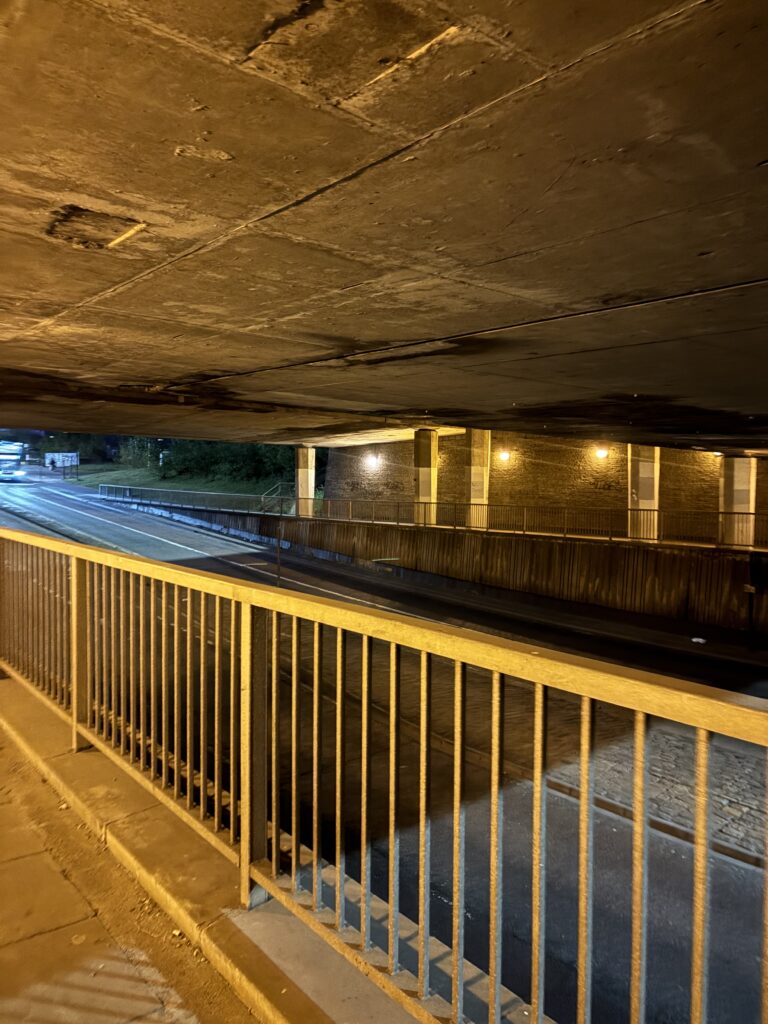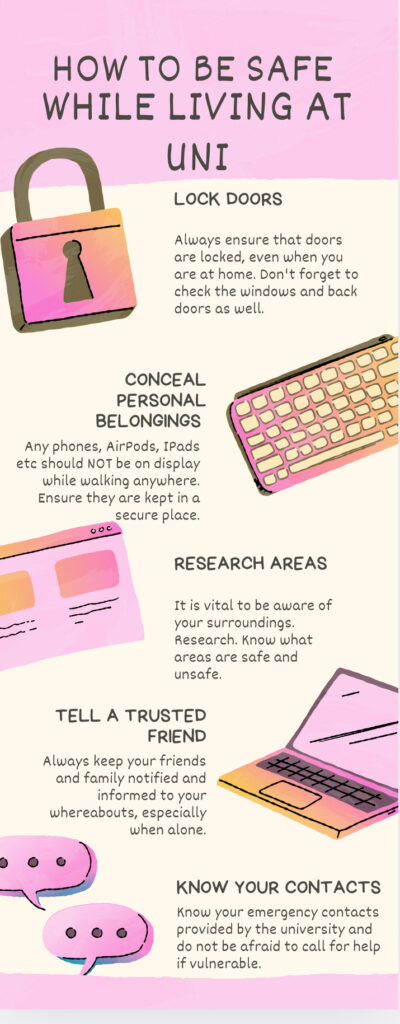Staying Safe at University
Starting university is an exciting milestone. It is a perfect time to meet new people, experience new found freedoms and most importantly, provide opportunities to learn. However, with new indepence, comes a new responsibility: to be aware, alert and most importantly, safe. Whether you are a first year or a fifth year, staying safe when living in a bustling city such as Newcastle is hugely important.
Back To Basics
What is seemingly common sense can often be forgotten once comfortable in a new city, therefore it is important to be reminded of the basic ways to stay safe while living independently.
Firstly, research the area you live; it is often easy to make the assumption that student areas are almost free from danger. However, this is not entirely true. It is vital to research what areas are safer than others; Try and avoid these routes when walking alone or at night. Student housing companies, crime maps alongside university guides can help offer an insight if you are unfamiliar.
While travelling to and from university, running errands or exploring new areas, it is also important to be aware of your belongings. Expensive items such as phones, laptops, headphones can all make a person vulnerable to opportunistic theft, especially when an individual seems engrossed in online affairs as opposed to maintaining an awareness of their surroundings. Items such as phone chains or phone bells can be useful to minimise this.To further ensure personal belongings are safe; plan routes, plan who you travel with, learn surroundings as previously mentioned, be hyper-vigilant to anyone else in the locality and if it feels unsafe, leave or call 999. For on campus issues, take note of the 24 hour university security number. Most universities offer safety leaflets, providing you with clear, direct emergency contact points for both physical well being and mental well being.
Another factor to take into consideration is travelling alone, more specifically at night and/or while intoxicated. Alcohol infamously lowers inhibitions and impairs judgement thus widening the risk of being victim to crimes. Walking home in groups or, alternatively, a reputable public transport service can minimise vulnerability and ensure you return home safely and securely. Ensure you are walking with friends and do not walk with someone you do not know or have met on an evening out. If you are walking alone, stick to brightly lit places, avoid underpasses or other secluded routes as these can often be hotspots for crime and most importantly, alert friends or family members of your location. Iphone users may find ‘Find My Iphone’ useful, for Android users ‘Life 360’ also provides live location sharing. Drink responsibly and stick together!

Once you have reached your accommodation, from here, you must also remember to check that doors are locked behind you, especially when living in a shared house/flat. In multi-occupancy houses it is often easy to assume someone is home and from this, fail to lock doors/windows. Please ensure room doors are locked, alongside front doors to certify that you are safe and secure.
Many of these top tips appear to be common sense and they are! However, when comfort, familiarity and/or alcohol is involved, many obvious personal safety habits often go neglected.

Expert Advice
Officer Turner, 24, at HMP Hindley offered a few top tips for staying safe in and around university campus.
Turner is a full time prison officer who works with attackers, thieves and ex gang members daily, giving her an accurate insight on the best possible plan of action to stay safe and protected at all times. She states that, when walking alone, always ‘look aware and walk with purpose.’ She also adds that ‘even if you feel scared, act confident… as [perpetrators] can easily spot vulnerable targets. Much like a goose; your legs may be flapping but your wings cover any sign of unease.’ Turner also states that if a situation escalates to a physical attack, ‘to place all of your attention onto one part of the attacker’s body.’ She uses the term ‘mind over matter…once you tell yourself “I’m getting his arm off me, all my attention is going towards [the attacker’s] arm, it will really help.’
As mentioned previously, Officer Turner works with convicted criminals responsible for theft and assault therefore giving her a complete awareness of how perpetrators operate. Although a physical altercation can be highly unlikely, it is important to still remain aware of worst case scenarios, in that way, you are always prepared and alert when commuting.
No matter how obvious these tips may seem, they can easily be forgotten once comfortable in a new environment. Please always remember to be aware of your surroundings, belongings and, most importantly, yourself.